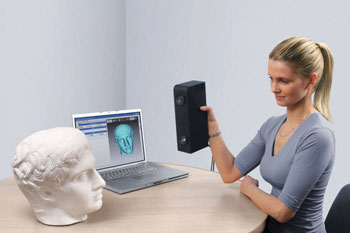"The Analog Hole (or loophole) is a fundamental and inevitable vulnerability in copy protection schemes for noninteractive works in digital formats which can be exploited to duplicate copy-protected works that are ultimately reproduced using analog means. Once digital information is converted to a human-perceptible (analog) form, it is a relatively simple matter to digitally recapture that analog reproduction in an unrestricted form, thereby fundamentally circumventing any and all restrictions placed on copyrighted digitally distributed work. Media publishers who use digital rights management (DRM), to restrict how a work can be used, perceive the necessity to make it visible and/or audible as a "hole" in the control that DRM otherwise affords them.
 I always laugh whenever I'm confronted with efforts to plug the analog hole; they're so... desperate. Like when my TV connects to my DVR, and I get the HDMI connection warning. Or when I visit websites which have right-click disabled, so you can't easily save pictures. (Well you can, by copying the screen, cropping, and saving with Photoshop.) Or when I have to use Handbrake with libdvdcss to save a DVD. Or when I have to use Calibre with DeDRM to save Kindle books. Etc. Etc. I always laugh whenever I'm confronted with efforts to plug the analog hole; they're so... desperate. Like when my TV connects to my DVR, and I get the HDMI connection warning. Or when I visit websites which have right-click disabled, so you can't easily save pictures. (Well you can, by copying the screen, cropping, and saving with Photoshop.) Or when I have to use Handbrake with libdvdcss to save a DVD. Or when I have to use Calibre with DeDRM to save Kindle books. Etc. Etc.
The latest interesting effort I encountered was Adobe's Reader (fka Acrobat), which can be instructed by a PDF document to block Window's PrntScrn copy-screen-to-clipboard function, in an effort to prevent people from easily copying content. I simply launched Adobe Reader in a VM, and used the host system's copy-screen-to-clipboard, and as I did so, I wondered whether all the effort Adobe had put into trying to close that particular analog hole was ever worth it. It feels like all such efforts destroy value rather than creating it, but I'm not sure.
Maybe the perception of security creates value, as it convinces content owners to distribute digitally when they might otherwise not have done so. When Apple first created the iTunes music store they had to have DRM or music publishers never would have licensed their content. A few years later, after the robust online music ecosystem had been established, it was possible for Apple to quietly drop DRM. (There was always an analog hole; I remember burning [physical] CDs from within iTunes, and then ripping the tracks into MP3 files.)
 The latest interesting digital content is 3D-printable objects. I can imagine some kind of DRM being created to prevent people from easily copying these files, or from printing them except on certain printers. And then some kind of hack to allow them to be printed anyway. But of course there is an uncloseable analog hole; 3D scanners, which can digitize a physical object to create a 3D-printable object. The latest interesting digital content is 3D-printable objects. I can imagine some kind of DRM being created to prevent people from easily copying these files, or from printing them except on certain printers. And then some kind of hack to allow them to be printed anyway. But of course there is an uncloseable analog hole; 3D scanners, which can digitize a physical object to create a 3D-printable object.
Perhaps someday everything will be reduced to digital bits, and the universe itself will be an analog hole.
| 




